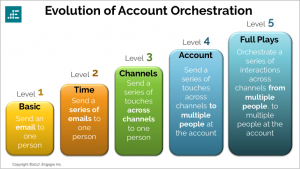April 29, 2024
How even the smallest acts of kindness make us happier and healthier
Kindness is also contagious—and science backs that up. This entrepreneur rediscovered that phenomenon when her community pulled together after a wintry blast knocked out power.
When a windy arctic blast raged through the Northeast U.S. this past winter, more than 600,000 people lost power for days. I was one of them. Because we don’t own a generator, our family toughed it out in the freezing cold without power. It tested everyone’s mettle. But when I stepped back from my extreme discomfort for a few moments, I discovered some extraordinary goings on: random acts of kindness.
The owner of a new takeout kiosk around the corner filled my thermos with boiling water several times a day. For free. The proprietor of a café I visit every morning, for my ritual coffee and croissant hot out of the oven, wanted to help. A man I know from frequent walks with my dog rushed toward me on the snowy path to warn that a tree I was about to pass could fall at any moment. (It fell later that day.)
There was no mandate for any of these behaviors. People acted out of genuine kindness and compassion. The exceptional acts of kindness took me out of my stressed-out, shivering-cold pity party by elevating my mood and boosting my overall well-being.
Instead of feeling isolated and alone, I was buoyed by a sense of social support and belonging within my community.
A close look at well-being
“Well-being” is a state that makes up various aspects of one’s health and happiness. We look at it in terms of physical, mental, and social. The big freeze we experienced in the Northeast, with its extended power outage and abundant outbreak of kindness, fostered a shared—and individual—sense of well-being.
According to research by Amit Kumar, an assistant professor of marketing and psychology at the University of Texas at Austin who studies happiness, people underestimate the positive impact a random act of kindness has on others.
Working with his colleague Nicholas Epley, Kumar says they found that people who performed a kind, unexpected act underestimated how much they were positively impacting the recipient of the act of kindness.
Kumar and Epley found that both the person acting kindly and the kindness recipient were in a better, more positive mood than normal after the kindness exchange. A positive mood directly impacts your overall emotional well-being. You recognize it as an unmistakable glow that wells up inside you.
A crisis brings out the best in people
What is it about a crisis that causes people to act kindly toward others? Jamil Zaki of Stanford University knows. He coined a term for it: “catastrophe compassion.”
The phrase refers to the compassion and caring behavior that people exhibit during disasters such as earthquakes, extreme weather events, and, as the world experienced not that long ago, a pandemic. Importantly, people come together to help and comfort strangers. This leads to a sense of shared identity and solidarity with one another. We bond with that group when disaster strikes. And when we have the same lived experience with others of surviving a catastrophe, camaraderie is instant.
In a time of crisis, one can feel desperate and alone, as I did. When others are unconditionally kind to you, the stress dissipates, you instantly feel more socially connected and your mental well-being gets a boost.
Zaki’s research found that while mainstream media tend to depict crime and antisocial behavior as the norm after a disaster, the opposite is true. Disasters, he says, produce groundswells of unselfish behavior and feelings of community.
Think back to the COVID pandemic. Zaki notes that billions of people practiced social distancing during the Covid pandemic. He also explains that selfless acts are common in the aftermath of extreme weather events such as tornadoes and hurricanes. This type of kindness on a massive scale adds to our sense of physical well-being, keeping millions of us more healthy than we would have been otherwise .
Emotional contagion leads to social well-being
Emotional contagion is another factor at play in the kindness phenomenon.
According to researchers, emotional contagion is where one “catches” the emotions of others. So if you’re feeling particularly cheery for example, others around you are likely to become more cheerful.
It was the fifth gray gloomy day in a row in New England, and from the look on people’s faces they had caught one another’s melancholy.

A few determined souls, myself included, ventured into the damp nature preserve for a walk. We each kept our heads down, not even nodding to say our usual hellos.
Suddenly, a large creature landed on a branch barely two feet above my head. Freezing in place, I slowly looked up and found myself face to face with a magnificent adult Bald Eagle. It was perched perfectly still.
This being such a rare sighting in our area, I carefully went about alerting anyone who approached to slow down, stop, and look. They too were elated at seeing this magnificent bird. I inched my way to a construction crew nearby to tell them about the bird. They put down their tools and ogled.
As more people approached, they stopped in their tracks, transfixed at the majestic sight of an eagle perched so low we could see the bird’s individual feathers. No one noticed the dreary weather any more. The collective mood had shifted to admiring the bird, which all too soon flew off. People’s spirits lingered as they turned to one another, bonding in hushed tones over the unusual shared experience.
Kindness can be cultivated
According to Steve Siegle of the Mayo Clinic, kindness is “a quality of being you can cultivate.” This is particularly good news for those who are confused about how to be intentionally kind.
Looking at kindness from the perspective of the person who’s being kind, Siegle tells us kindness boosts the feel-good hormones, serotonin and dopamine, and “can decrease blood pressure and cortisol, a hormone directly correlated with stress levels.” So not only are we positively impacting others, kindness is a well-being medicine for us too.
Kindness is good for mental and physical well-being
At this point, you may be thinking all this is obvious. If that describes you, I encourage you to think back to the last time you told yourself, “How kind of them!” when someone was kind to you out of the blue. Then remember how it made you feel.
Search the health benefits of practicing kindness toward others, and you’ll find a plethora of scholarly articles on kindness’ positive impacts on mental and physical health and well-being.
How you can show kindness
Here are a few ideas for showing kindness as you go about your day. It’ll boost your sense of well-being while making others feel good as well.
- Practice random acts of kindness. Do something nice for someone without expecting anything in return. An easy act: At the grocery store, let someone with a few items jump ahead of you in line.
- Give a sincere compliment without expecting anything in return. Tell a colleague they did a stellar job closing the extremely complex deal.
- Smile when you walk by someone. It’ll brighten their day and yours.
- Be helpful when it’s not expected. Most people appreciate a helping hand now and then.
- Contact someone you’ve not spoken with in a while. Tell them you thought of them and wanted to find out how they’re doing.
- Inspire others. All it takes is a few words to encourage people in your personal life and at work to pursue their goals and aspirations.
What will you do to show gratitude and kindness today?
ABOUT THE AUTHOR
Fast Company
(13)
Report Post




